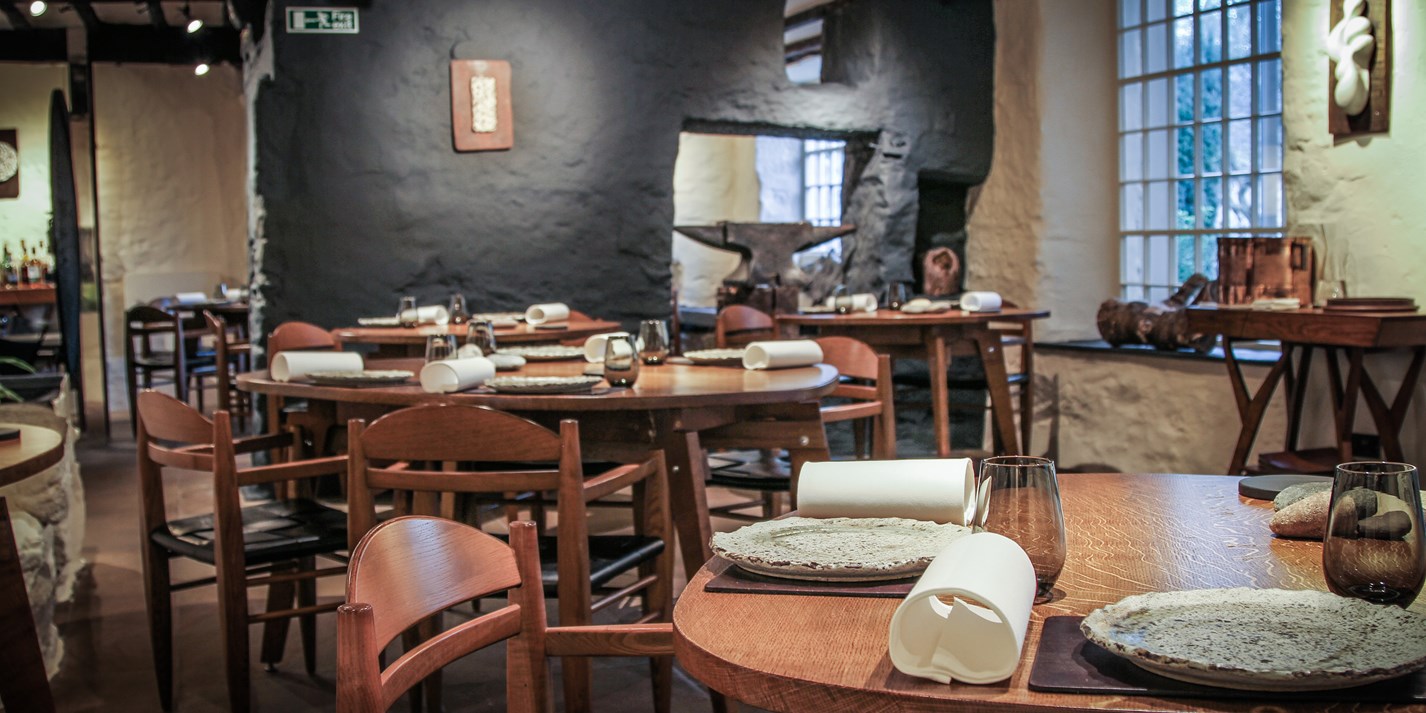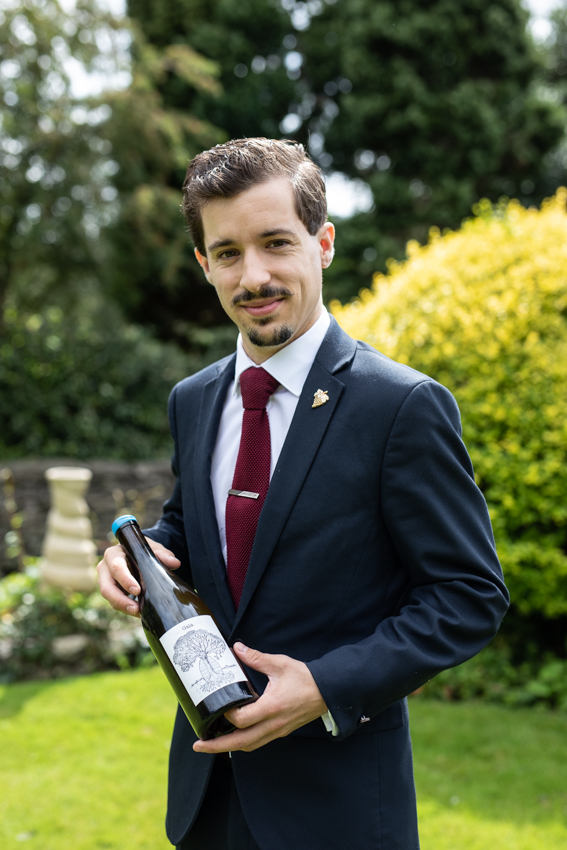Lakelovers Discount Codes – Latest July 2025 Offers!
Discover all of the latest Lakelovers discount codes, voucher codes and offers for 2025 right here! Idyllically positioned in...

Most lovers of food and drink will be quick to agree that no trip to Cumbria is complete without a visit to Cartmel!
Home to Simon Rogan’s renowned restaurants L’Enclume and Rogan & Co, as well as his development kitchen and chef’s table Aulis, it’s no surprise that the region has become known as a destination for anybody who appreciates excellent restaurants and local produce.
We recently caught up with Head Sommelier at L’Enclume, Valentin Mouillard…

Valentin Mouillard
Tell us a little about what you do
I’m the Head Sommelier at L’Enclume. To keep it simple my role in the restaurant is to look after the beverage programme, together with my team of sommeliers, we ensure that all our guests are able to enjoy the drinks we offer. As we do with our menus at L’Enclume, we like to take our guests on a journey of discovery.
What was your first ever wine job and what inspired you to become a sommelier?
My earliest memory was helping my dad pour a champagne fountain at a wedding. That’s the first time I realised I wanted to work in hospitality, and from there I moved my way into wine learning how to be able to explain the beauty of this beverage, which brings people together at celebrations, dinners and other occasions.
Which personality traits are the most important in becoming a good sommelier: psychologist, counsellor, artist, performer?
I think counsellor is one of the most important personality traits, as a sommelier you are there to guide your guests. Every wine list is different, and no one can know all of the drinks available within a given list. So, we are on hand we offer guidance to everyone who requests it. After selection, of course, we have an opportunity to unleash our artistic/performance traits during service when we run ‘the show’ as we call it.
How do you work with the chefs and kitchen to marry wines/drinks and their creations? What are your tips for menu pairing?
At L’Enclume, we enjoy complete freedom with our pairings, as Simon trusts us to find the perfect drink to compliment his food.
Simon’s, head chef Paul Burgalières and the team come up with new dishes, introduce them to us and we play around with interesting beverages and new discoveries to create our pairings (3 wine pairings and a soft drinks pairing)
To find the best possible food pairing is to fully to understand the dish you are trying to match – that means to identify the main component that brings flavour into the dish. The question you then have to answer is if you want to highlight that ingredient or make another dish component shine more?
As a sommelier you taste lots of wine, what do you feel makes a bottle of truly great wine and can you tell from that initial tasting?
What I’m usually looking for in a wine is its elegance or clear expression. The bouquet needs to shine and start to tease your nose. The palate will have beautiful acidity at the beginning, which will attract you, then you discover the first fruit flavours, which will continue to develop in your palate. This will be your anchor and will start to give you an opinion. If the wine shows more flavours and develops more interesting aspects later, then it is an outstanding wine, if not then it was a great wine anyway.
How do you analyse something like a wine which is a very subjective experience?
There are different ways to analyse for me… The first being does the wine profile correspond to the wine area, appellation, or the main grape variety which will let you understand how it could taste. The second would be, do I like it. As mentioned before, is it elegant, is it expressive and would I order a bottle for myself?
What has been the biggest change in the wine world since you started your career?
The biggest change would be the improvement of natural wines and the acceptance of them by the public.
When I started, natural wines were starting to become more important for a myriad of reasons. A lot of winemakers wanted to begin making wines of this type but didn’t fully understand the principles. The issue is, to be able to make an organic wine, unfiltered and without sulphite you cannot just let the vines grow, press the juice, ferment it and bottle the wine. It’s actually even more complicated than being a “traditional winemaker” because you cannot hide your mistakes with any chemicals.
Now, however, it is much easier to find some good natural wines. Winemakers and governments are, in general, making much more effort towards organic and bio-dynamic processes. This allows us to be able to introduce unfiltered wines or low sulphite added wines without having the pressure of having guests refuse these wines.
What is your favourite terroir for wine?
My favourite terroir, that’s a difficult choice, I would pick two, Muscadet and Jura. Both of them relate to me, either because they are close to my hometown or where my family live. The real gems are unknown to most people and in many cases, the potential of these wines is misunderstood. In Muscadet, you can find some amazing hidden gems, which is even better knowing that most people think it’s an uninteresting wine. Some Muscadet winemakers are doing a really stunning job by leaving the wine longer on the lees to improve in the barrel or in an egg-shaped vessel to develop more flavours and depths. Jura in another hand has already started to flourish, wines from there are very unique, especially Vin Jaune, which could be compared to Sherry but isn’t fortified, it’s more elegant in my view because the alcohol is lower. Like sherry I recommend that you are introduced to them gradually because yellow wines are very different, but do give them a go, especially with a piece of Comte cheese, it will simply blow your mind.
Can you describe the greatest wine and wine experiences that you have ever had?
The wine experience that stands out for me was the first time I opened a bottle of Riesling from Egon Muller or J.J. Prum. Nowadays every time I open a top Riesling it’s always exciting. What surprised me the most it’s this energy stored inside the bottle. It’s just like a firework of flavours and pure acidity settled by the ripeness with a dash of residual sugar. The only thing you want to do is to have another glass to repeat this experience.
What is the oldest wine you have tasted and what was it like?
Domaine Mouillard, Château-Chalon, 1936.
I am part of the 4th generation of a winemaking family. However, I’m not taking part in the wine-making process, but I am definitely involved in the tasting part. We managed to convince my grandfather his anniversary was a pretty good excuse to open this special vintage. It was just so smooth, it had this lovely hint of walnuts, dried fruits and curry spices at the end.
What tips do you have for someone going to their first wine tasting?
My tip is to relax. At the end of the day, there is no wrong answer. You just look at the colour of the wine, if it’s a white wine, just remember that you won’t find red or blackberries flavours but more likely the stone fruits or citrus flavours and the reverse is true for red wines.
What do you enjoy drinking when you have a little downtime?
At home, a good beer is always welcome, I really like sour beers or a nice glass of white wine or light red. I’m usually not looking for a drink to challenge but to chill. It will most likely be an old-world wine though from either France, Germany or Austria, providing plenty of minerality, and elegance with a dash of earthiness.
Have you got a favourite local spot (besides L’Enclume, Henrock or Rogan & Co) where you like to unwind?
The Brewery of Unsworth’s Yard is where will find me most of the time, a brewery and cheese shop next to each other it’s the perfect set up and you can even get freshly baked pizzas at the weekends.
Explore our fantastic collection of properties in the foodie village of Cartmel and experience L’Enclume yourself.